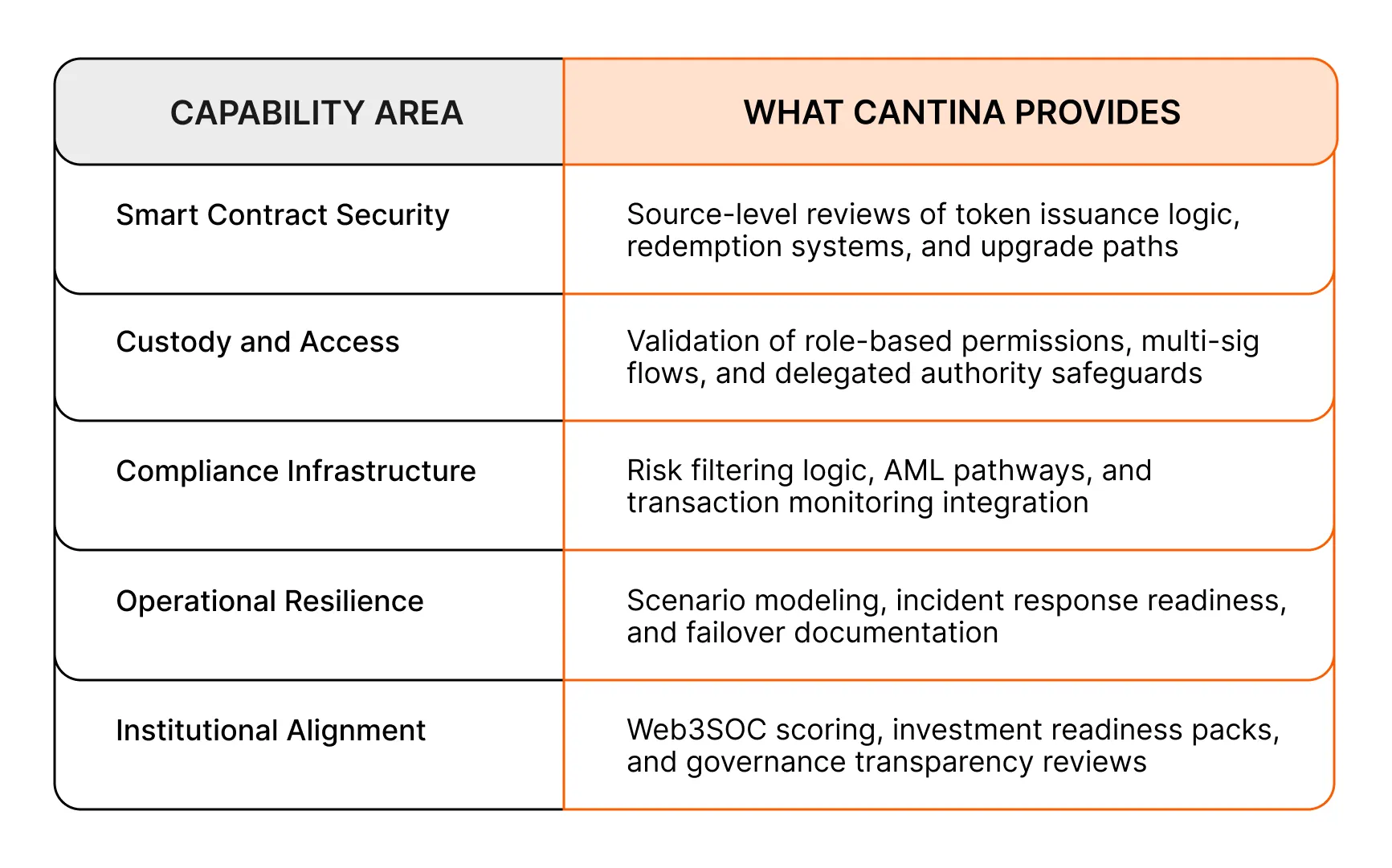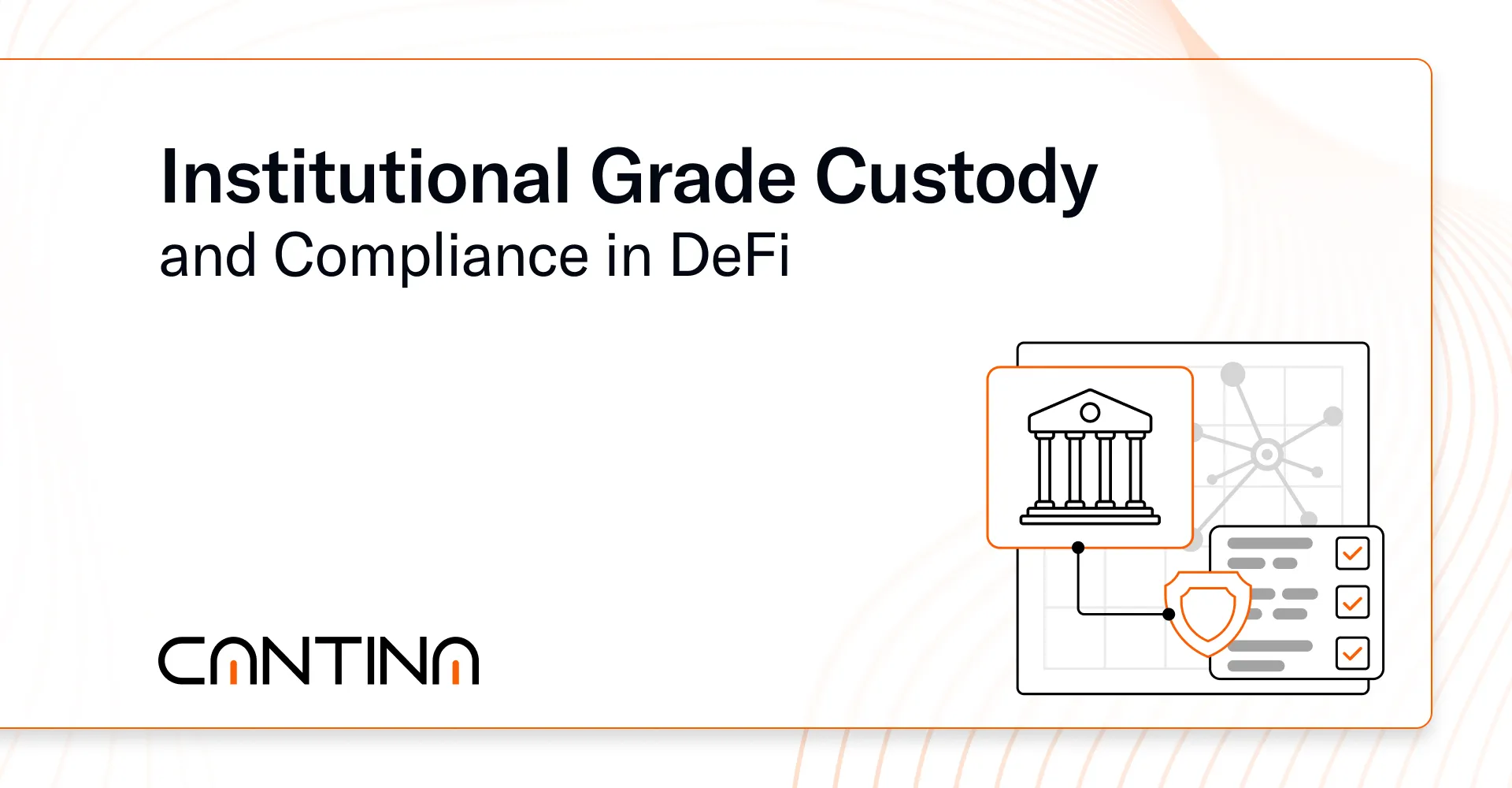One of the foundational requirements for institutional participation in DeFi is secure custody and rigorous compliance infrastructure. Institutions operate under fiduciary mandates and face higher operational scrutiny, making ad hoc wallet management unviable. Instead, digital asset systems must integrate formalized security and compliance mechanisms that reflect enterprise expectations.
In the context of DeFi, institutional-grade custody and compliance translates to infrastructure that maintains continuous asset control, enforces structured authorization logic, and integrates policy-level safeguards while maintaining the composability of smart contract environments.
Evolving Custody Architectures for Institutional Integrity
DeFi interaction requires private key signatures for every transaction. That alone introduces substantial risk in an institutional context. A single compromised device or negligent approval could result in significant loss. Custodial solutions have evolved to mitigate this through cryptographic techniques, role-based authorization, and structured governance enforcement.
Multi-party computation custody solutions, including those from Fireblocks, Copper, and Coinbase Custody, split private keys across multiple parties and devices. Transactions require quorum approval, reducing exposure and limiting the risk of key compromise. These systems often incorporate secure enclaves and hardware isolation, allowing organizations to maintain transaction integrity while preserving full internal visibility.
Enterprise custody platforms also offer policy-controlled workflows. Access control is structured by internal roles and permissions. Interactions with external DeFi protocols are constrained to approved addresses, and movement of assets can be gated by multi-role approval flows such as CFO and compliance officer signoff. These internal governance controls allow institutions to mirror traditional risk management in onchain execution.
Certain jurisdictions also require use of qualified custodians. Anchorage Digital in the U.S. and Zodia Custody in the U.K. and UAE exemplify entities that meet this designation. These providers combine regulated asset custody with native DeFi access, offering staking, lending, and liquidity participation within a supervised custodial environment. Asset deployment occurs under retained security controls without compromising chain-level composability.
Compliance Integration and Risk Filtering
DeFi compliance is centered around verification of counterparties, monitoring of asset flows, and auditability of transactions. Institutional systems are expected to incorporate risk-scoring, identity verification, and enforceable limitations on exposure.
Transaction monitoring providers allow organizations to screen counterparties in real time. Protocols integrating these services proactively block interaction with high-risk or sanctioned addresses. This functionality is essential for institutional participants to meet AML and sanction compliance requirements.
Travel rule enforcement is gaining ground across jurisdictions, requiring verified identity information to accompany large transactions. While open DeFi poses challenges here, permissioned pools and identity-bound token standards are making it possible to satisfy these obligations without compromising composability or security. Infrastructure designed with identity tagging and privacy-preserving disclosures can ensure regulatory alignment for institutions.
Custodial platforms increasingly offer compliance automation. Fireblocks, for instance, integrates risk scoring into transaction workflows, blocking transmissions that fail internal policies. These dashboards also generate comprehensive audit logs, satisfying both internal audit teams and external regulatory expectations. Regulators in Hong Kong and Singapore now expect periodic reporting of DeFi exposures. Platforms that preemptively provide this integration offer substantial onboarding advantages.
Cantina’s Role in Compliance-Aligned DeFi Infrastructure
Cantina supports organizations that seek to align custody and compliance infrastructure with institutional standards. This includes structured review systems that validate not only code-level integrity but operational, governance, and risk management design.
Web3SOC, developed by Cantina and its partners, provides structured institutional scoring. This enables classification of DeFi protocols based on operational design, financial safeguards, regulatory posture, and system security. Institutions can rely on these scores to assess risk exposure, while protocols use the scoring breakdowns to identify and close gaps.
Our approach includes security validation of access roles, multisig enforcement, and administrative governance paths. Cantina assesses redemption systems, custody architecture, and oracle dependencies. Our incident command protocols help organizations establish actionable recovery and communication procedures. Documentation output supports investor relations, regulatory filings, and third-party due diligence.
Institutional Readiness Summary

Conclusion
Institutional capital is increasingly seeking exposure to DeFi systems that demonstrate reliable custody, clear compliance alignment, and verifiable operational controls. Protocols aiming to meet this bar must adopt practices familiar to regulated entities while maintaining the permissionless advantages of public infrastructure.
Cantina helps organizations bridge this gap. Our process integrates structured audits, scenario modeling, compliance validation, and scoring systems that support institutional onboarding and regulatory alignment.
Contact us to prepare your infrastructure for institutional participation and regulated engagement.




